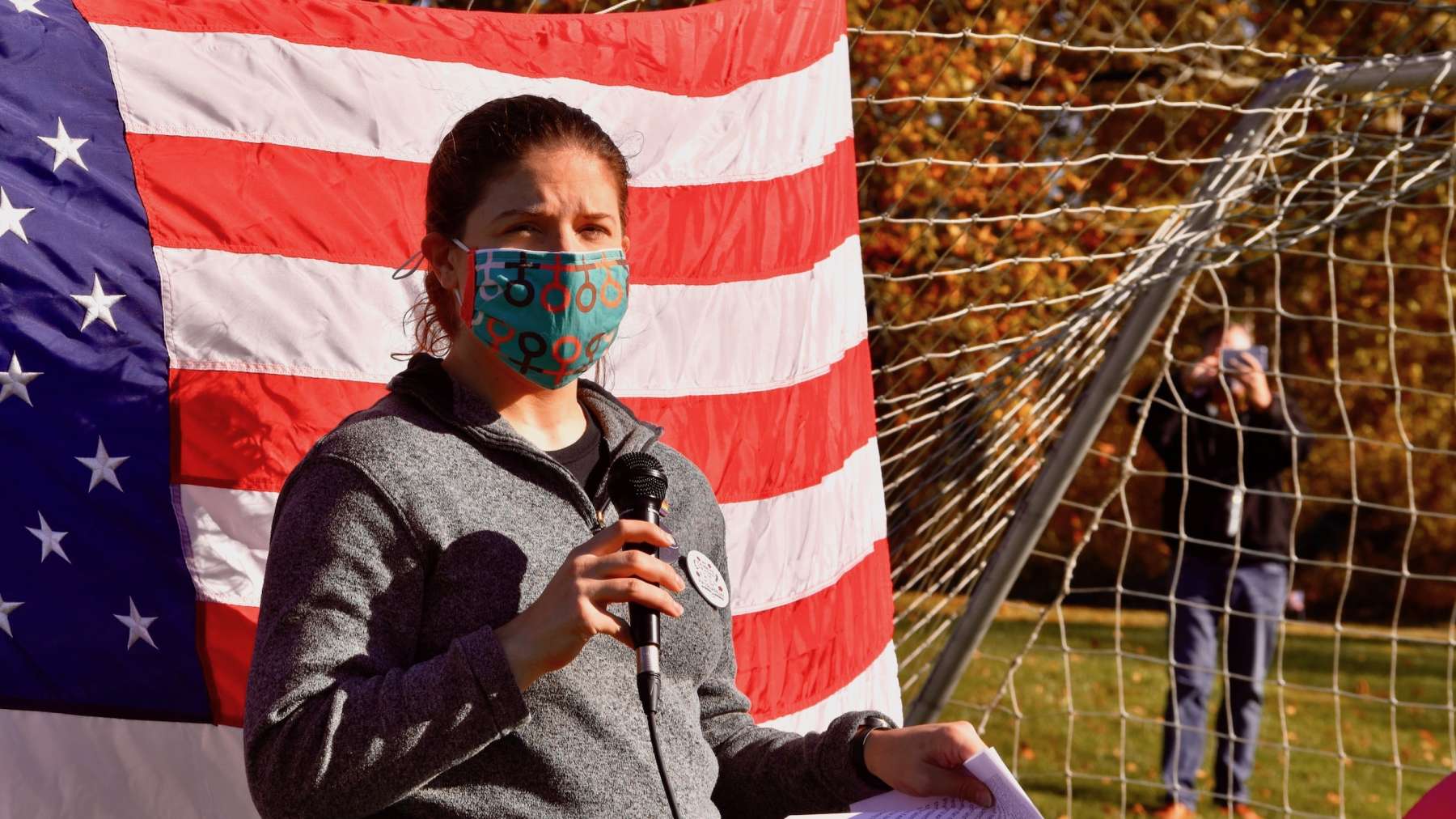Jenna Magnuski: We are tireless too…
“…Even in Rhode Island, these rights are not indestructible. Those seeking to erode these rights are tireless. Find your people. Lock arms with them. Fight with them. Hold them up when they get overwhelmed, and let them hold you up when you need it…”
June 26, 2022, 11:04 am
By Jenna Magnuski
When people ask if I’m sure that I’m done having kids, I have a couple responses.
As a working class mom, the cost of parenting looms large. When I was a kid, I told my mom that I wanted a sister. She replied that she might have had more kids – but realized she couldn’t afford another child. As a kid, that seemed cold and calculating. Now as a parent, I feel that palpably. Another child would likely break us financially, and if it didn’t we would be working so much that we’d never see any of the kids.
At first, I said that a lot. Many folks responded much like I responded to my own mom. “Aww, c’mon!” So I began to somewhat-jokingly say that I’m scared about what a third pregnancy would do to my body. After I birthed our eldest nine years ago, I became extremely sensitive to cow’s milk. When I was pregnant with our second, now six, I developed an autoimmune blood clotting disorder and fibromyalgia. My wonderful children enacted a toll on my body, and I’m honestly not sure I could pay the next one.
Sharing that reason usually ends the conversation. Still looming in the back of my mind is the reality that I’m just three years out from surgery and radioactive treatment to remove a rare and aggressive form of thyroid cancer. Blood tests show that there are still cancer cells in my body but that my medications have kept it in check. Pregnancy could shatter that. The same hormone detected in a pregnancy test, hCG, is very similar to a hormone that stimulates thyroid cell activation & growth. Recurrence would be more likely, and fast. Delaying treatment wouldn’t be an option. Surgery, chemotherapy, and radioactive treatment would be dangerous for myself and for a developing embryo or fetus. Complications, miscarriage, and death would all be distinct possibilities. Assuming I survived the early stages of a miscarriage, how hard would it be to get the post-care that I would need, and would that lack of access make my two sons motherless?
As of Friday morning, the answer to that question depends on where you live and how wealthy you are. You might think, “this is Rhode Island. We’re a blue state. We codified Roe vs. Wade.” And you’re right. But you also might not realize how narrowly that came about. 40% of Rhode Island House Representatives voted against it. (Thankfully, Little Compton’s House Representative at the time voted for it and the current Representative, Michelle McGaw, was advocating for its passage as a citizen.) In the State Senate, the vote was 21 to 17. 45% voted against it (including Little Compton’s State Senator, Lou DiPalma). Even now, a bill intended to make sure all Rhode Islanders could access the right to a safe & legal abortion, the Equality in Abortion Coverage Act (EACA), stalled in the legislature before the session ended.
There are other rights coming next at the national level, too. Ones built in part on the foundation of Roe’s now-fallen precedent. Supreme Court Justice Clarence Thomas specifically named a few.
Contraception is worth protecting on its own. Being able to decide if and when to have children has enabled birthing people to become more fully themselves and to more fully engage in our society. It’s also used for so much more than contraception. For example, controlling hormone fluctuations also helps manage my fibromyalgia. I’m not alone. In 2020, 14% of contraceptive users took it only for reasons other than pregnancy prevention, and more than 50% of users take it for pregnancy prevention in addition to another medical use. Taken together, 64% of users would be subjected to health challenges beyond the possibility of conception.
Though I’m queer, my love for a cisgendered, heterosexual man means that my marriage is safe. That isn’t the case for my LGBTQ+ siblings who were deprived of that right until the Obergefell decision, who were then able to ensure their partners and spouses could make medical and post-life decisions for them. That they could be okay after they were gone. That their children were truly theirs. And so many other rights that follow from a legally recognized marriage. Meanwhile, a raft of bills are working their way through legislatures across the country. They would take away everything from the small validation of playing on the sports team that matches your gender identity to denying access to life-saving, gender-affirming healthcare. Children with a queer or gender-expansive parent wouldn’t hear or be able to talk about families like theirs at school. Friends would lose opportunities to learn acceptance of LGBTQ+ identities before heading, unprepared, into our beautifully diverse world.
So much hinges on this, friends. We cannot sit aside. Hundreds of Rhode Islanders rallied at the State House on Friday night, and we invited folks to Little Compton Town Hall today, because we know that it does not work like that. Even in Rhode Island, these rights are not indestructible. Those seeking to erode these rights are tireless. Find your people. Lock arms with them. Fight with them. Hold them up when they get overwhelmed, and let them hold you up when you need it.
Together, we are tireless too.






